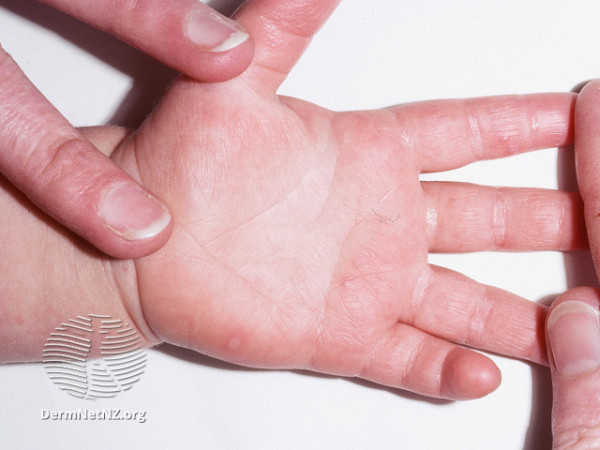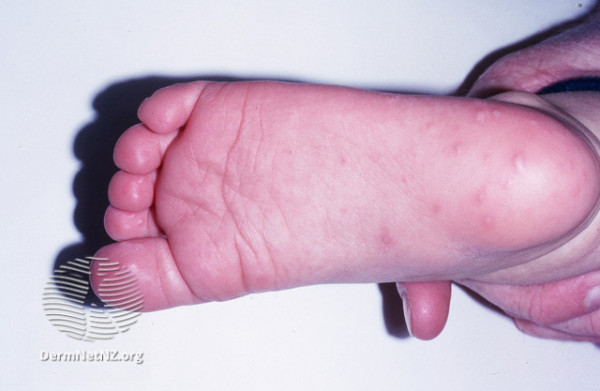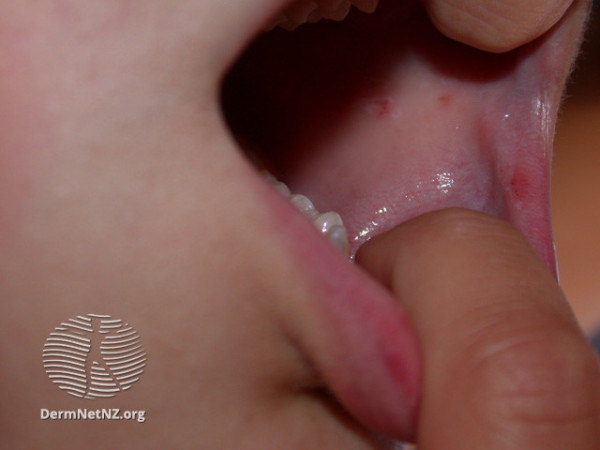How does the disease spread?
Your child can catch the disease by:
- breathing in droplets from a person with the illness who is coughing or sneezing
- contact with mucus, saliva, blisters or the poo of an infected person
- touching infected objects like toys, and then putting their hands or toys in their mouth.
Symptoms
- Blisters in the mouth, tongue, the palms of the hands and soles of the feet (blisters can be painful)
- Fever
- Loss of appetite
- Tiredness
- Sore throat
The symptoms are often confused with chickenpox. However, typically with chickenpox, the rash is all over the body and your child will be sicker. If you’re not sure what type of illness your child has, call PlunketLine.

(DermNet NZ)

(DermNet NZ)

(DermNet NZ)
Prevention
There are a few things you can do to prevent hand, foot and mouth disease:
- teach your child proper hygiene
- cough and sneeze into an elbow
- wash hands properly before eating, after using the toilet and at other times too
- keep your child at home if they have hand, foot and mouth disease so they don’t spread it to others.
Treatment
Hand, foot and mouth disease is a viral illness so there is no specific treatment. Just keep your little one comfortable by resting at home until they're better, and all the blisters have dried.
Below are some other tips to help your child recover. Ensure that your little one:
- avoids sour, salty or spicy foods if their mouth is sore
- drinks plenty of liquids to help their body feel better and avoid dehydration
- suck on ice or ice blocks to help with a sore mouth
- frequently wash their hands to decrease the chance of spreading the infection to others
- sneeze and cough into their elbow – and if tissues are used, throw them in the rubbish right after.
Can hand, foot and mouth disease happen more than once?
Yes, hand, foot and mouth disease can occasionally happen more than once as there are different types of the virus that cause it.
When to visit a doctor
Call PlunketLine or your family doctor if your little one:
- hasn’t been able to drink because of a painful mouth
- has had fewer than four wet nappies in 24 hours
- seems to be getting worse, or are not getting better after a few days.
It's unlikely that you'll get the illness if you are pregnant. If you do catch the disease, the risk of complications is also quite low. However, there are still risks so talk to your doctor or midwife if you think you may have hand, foot and mouth disease.
Hand, foot and mouth disease